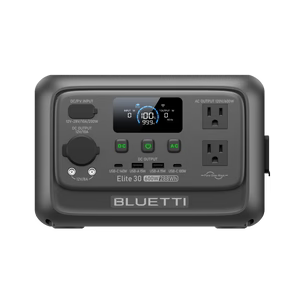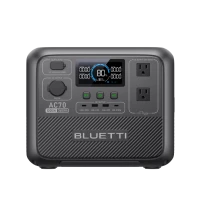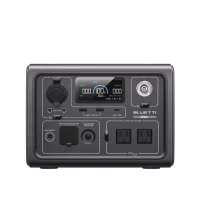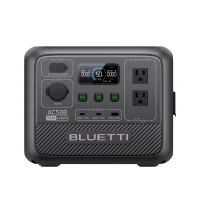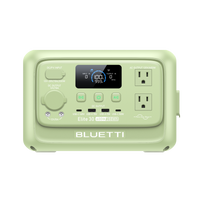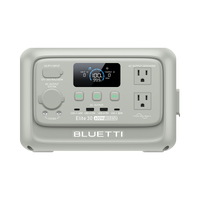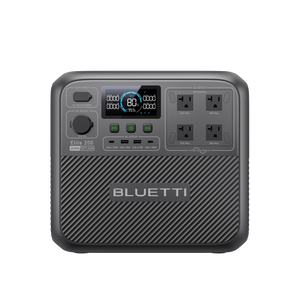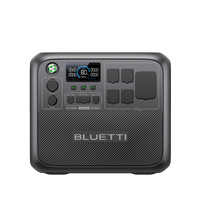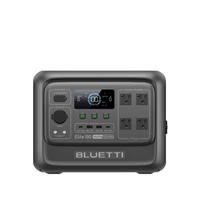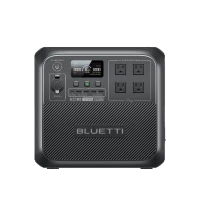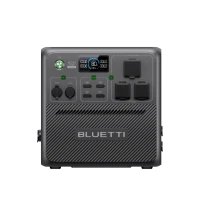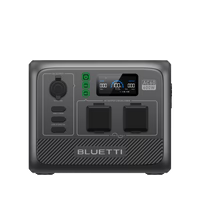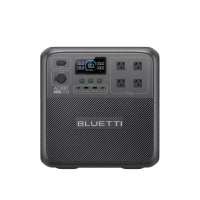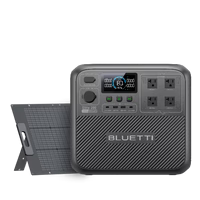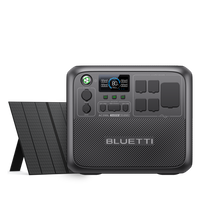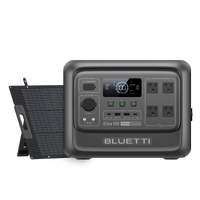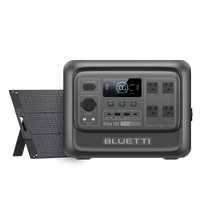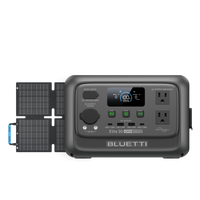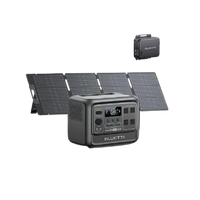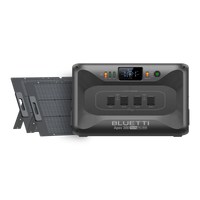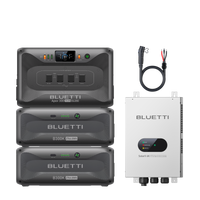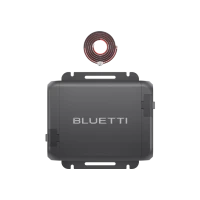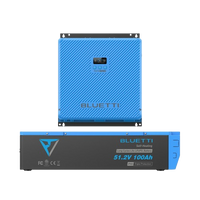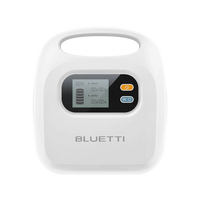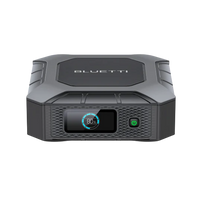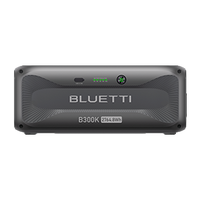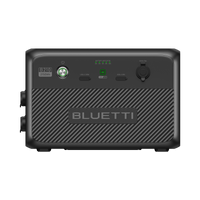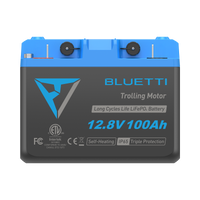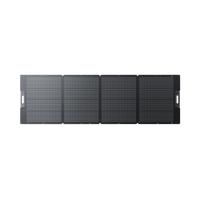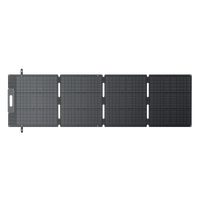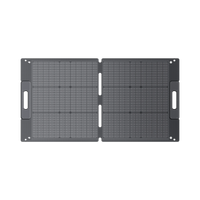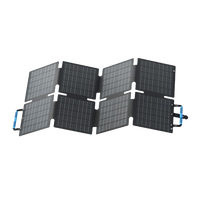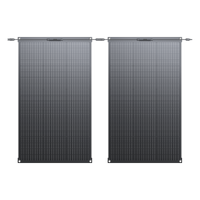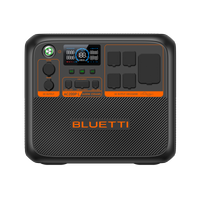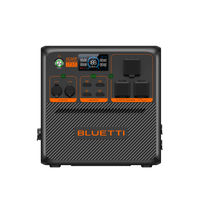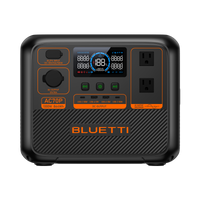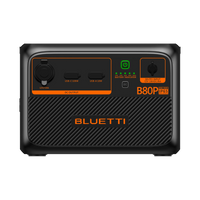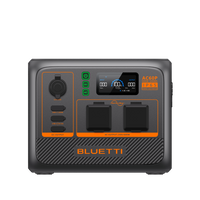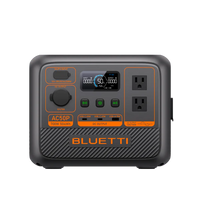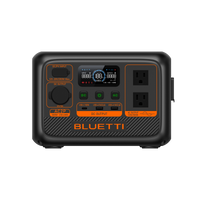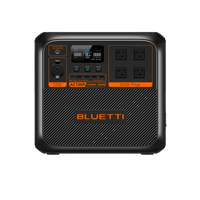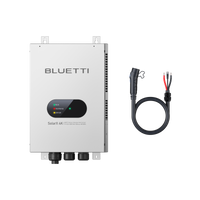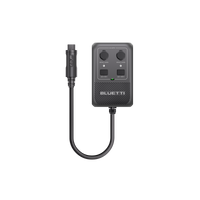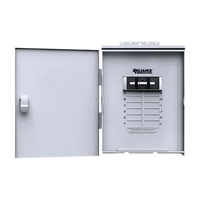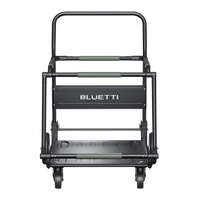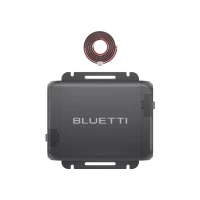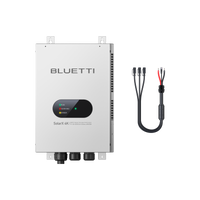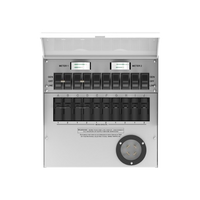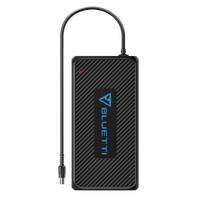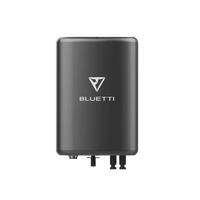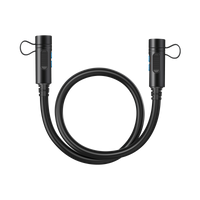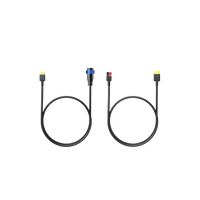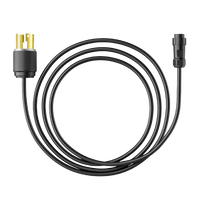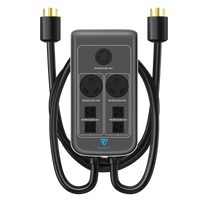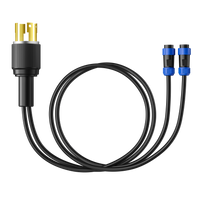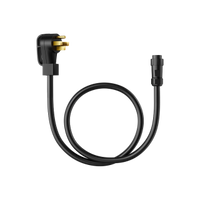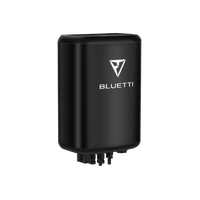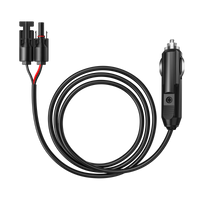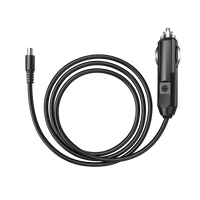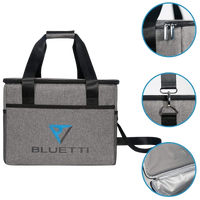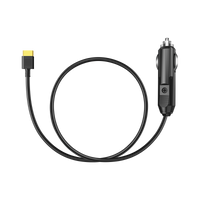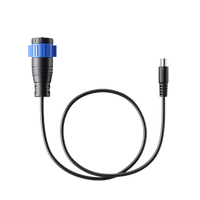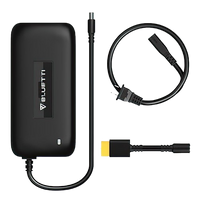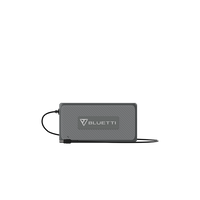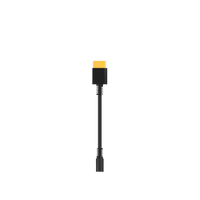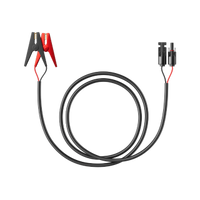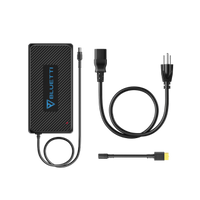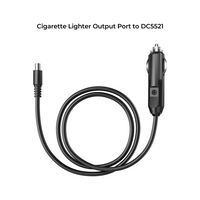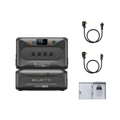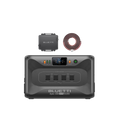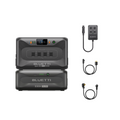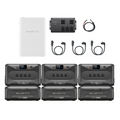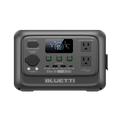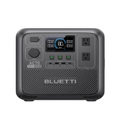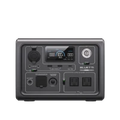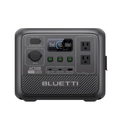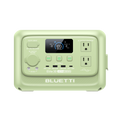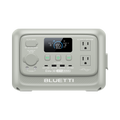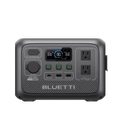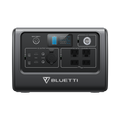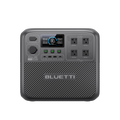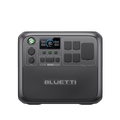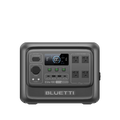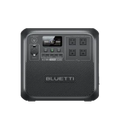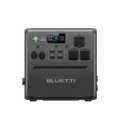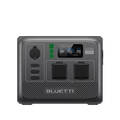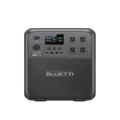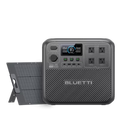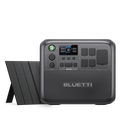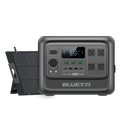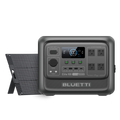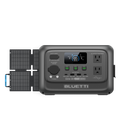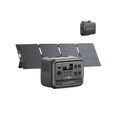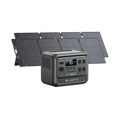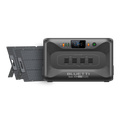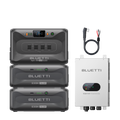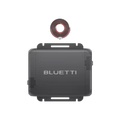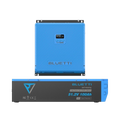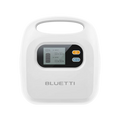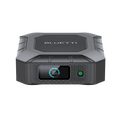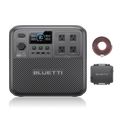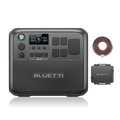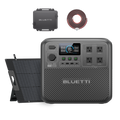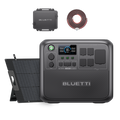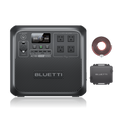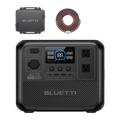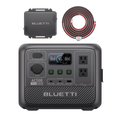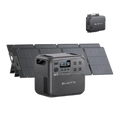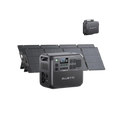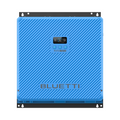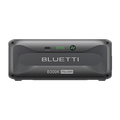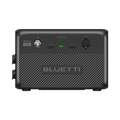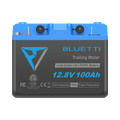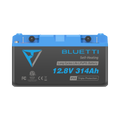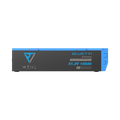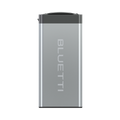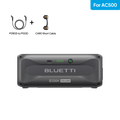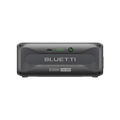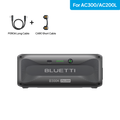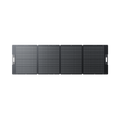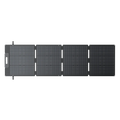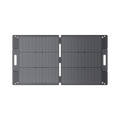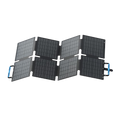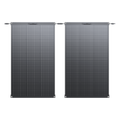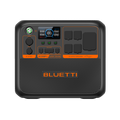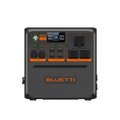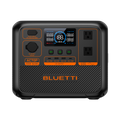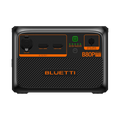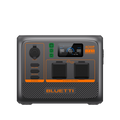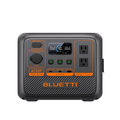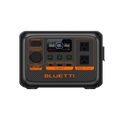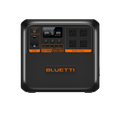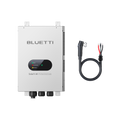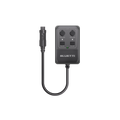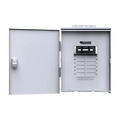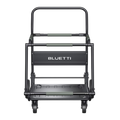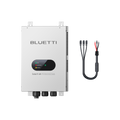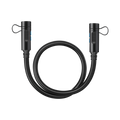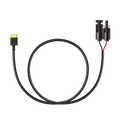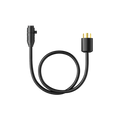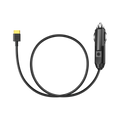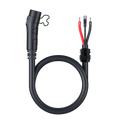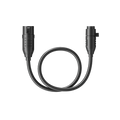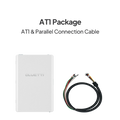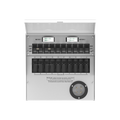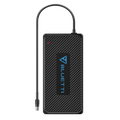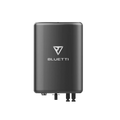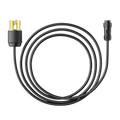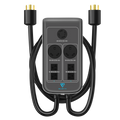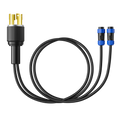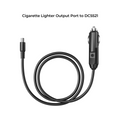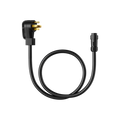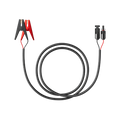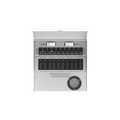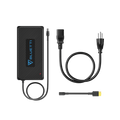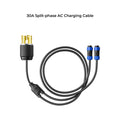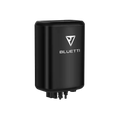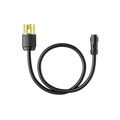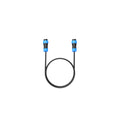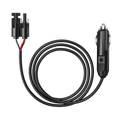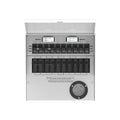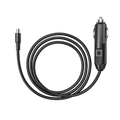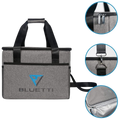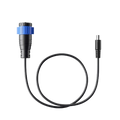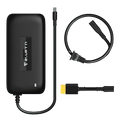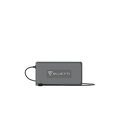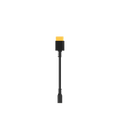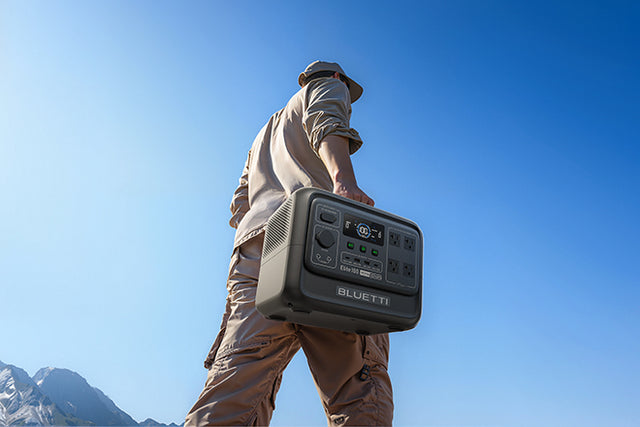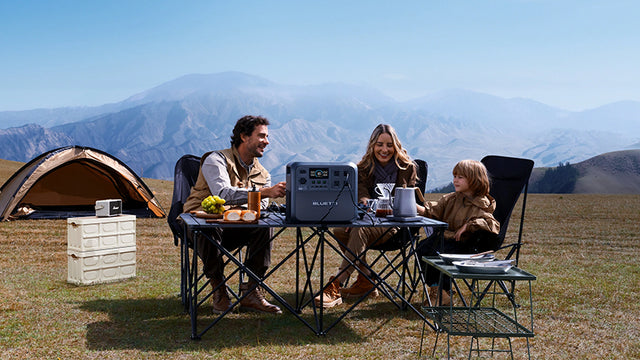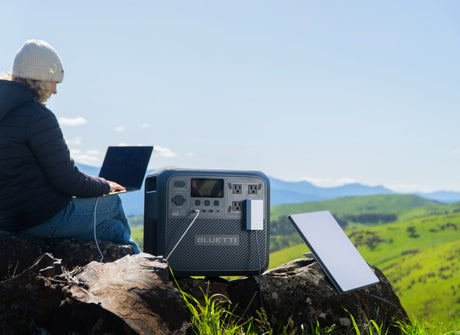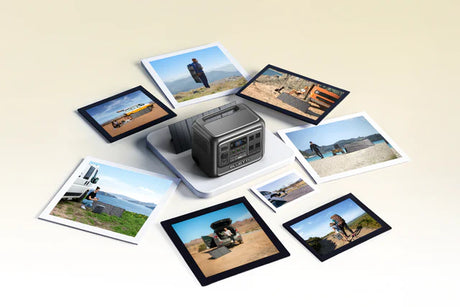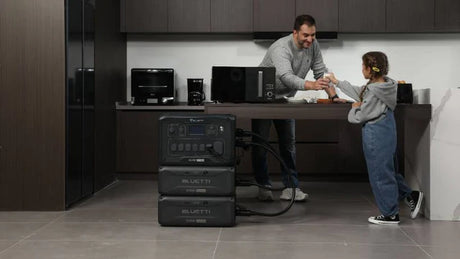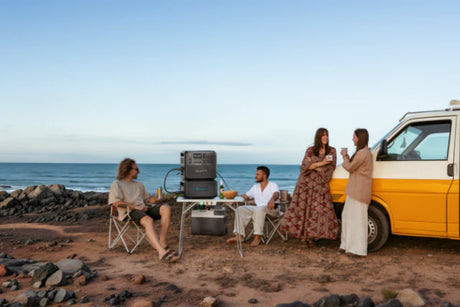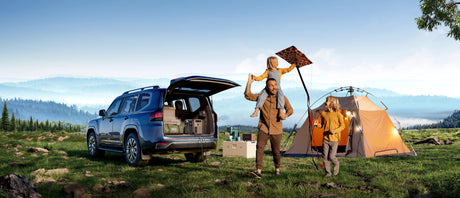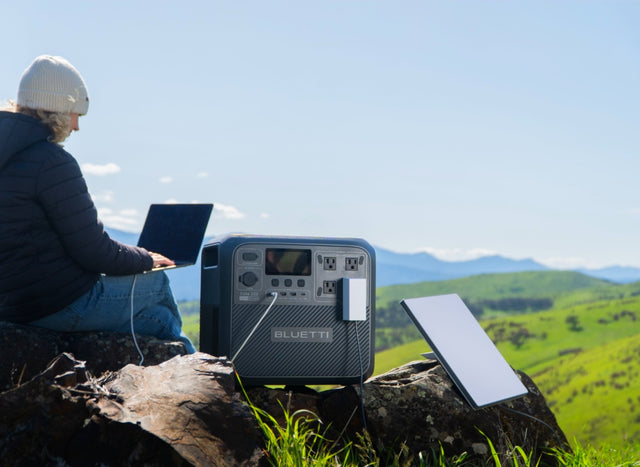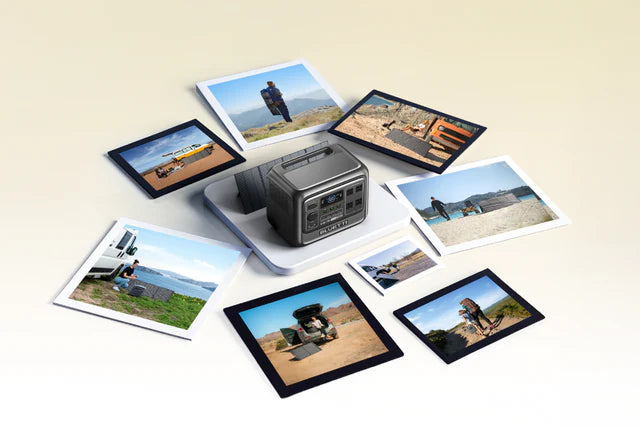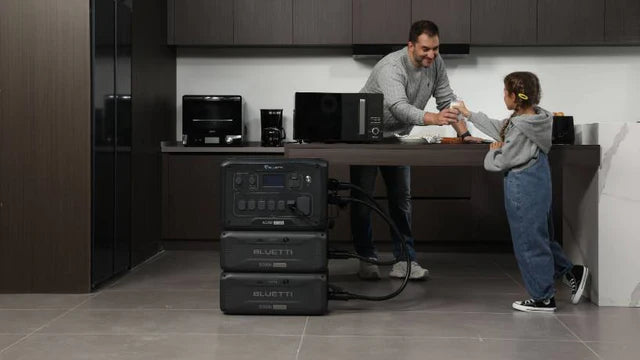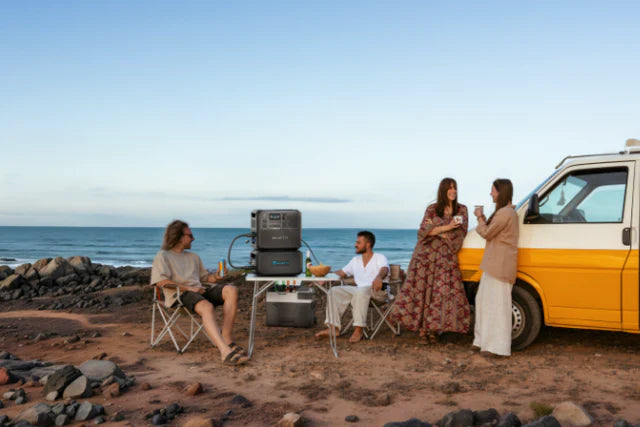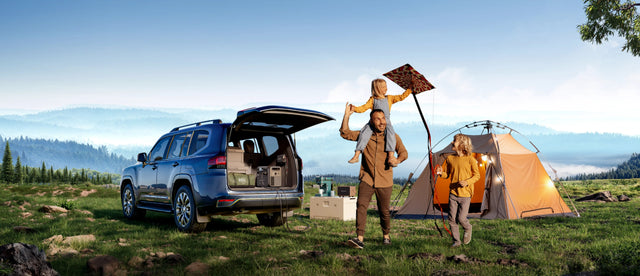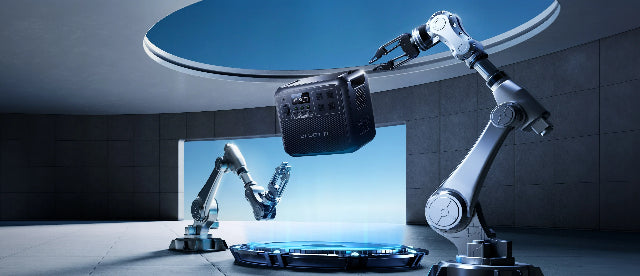Le soleil est abondant et le jour est le moment idéal pour profiter de son énergie. L'énergie solaire est aussi puissante et fiable que le soleil. Cependant, il est légitime de se demander : les panneaux solaires produisent-ils de l'énergie la nuit ?
La réponse ne se résume pas à un simple oui ou non. Les panneaux solaires ne constituent qu'une partie de la solution. Pour garantir une alimentation électrique continue la nuit ou par temps couvert, d'autres éléments sont nécessaires. C'est ce que cet article abordera.
Les panneaux solaires représentent un investissement important. Vous voulez vous assurer d'avoir de l'énergie lorsque le soleil brille et même lorsqu'il est absent.
Vous voyez, les panneaux solaires ont besoin de l'énergie du soleil pour produire de l'électricité. Donc, la réponse à la question de savoir si les panneaux solaires fonctionnent la nuit est non. Les panneaux solaires ne fonctionnent pas à proprement parler la nuit.
Sans lumière solaire, les cellules photovoltaïques n'absorbent rien. La nuit, le soleil ne brille pas. Mais vous n'avez pas à vous inquiéter de manquer d'énergie pendant les heures d'obscurité.
Heureusement, les panneaux solaires fonctionnent toute la journée lorsqu'il y a du soleil. Pendant la journée, ils absorbent suffisamment d'énergie pour assurer une autonomie de plusieurs heures. Vous pouvez également stocker le surplus d'énergie grâce à des batteries solaires ou au système de comptage net. Ainsi, vous avez la garantie d'avoir assez d'énergie pour toute la nuit.
L'installation de panneaux solaires offre la possibilité de se raccorder au réseau électrique, ce qui permet de bénéficier du système de comptage net. L'électricité produite par les panneaux est alors réinjectée dans le réseau.
Là où il est proposé, le système de comptage net fonctionne comme un compte d'épargne. Lorsque vos panneaux solaires produisent un surplus d'électricité, celui-ci est injecté dans le réseau.
En échange, le fournisseur d'électricité vous rembourse ou crédite votre facture. La nuit, vous pouvez utiliser les crédits d'énergie accumulés auprès du réseau électrique durant la journée.
Le système de comptage net est activé lorsque vos panneaux ne produisent pas d'énergie la nuit. Ce raccordement bidirectionnel permet à l'électricité de circuler aussi bien vers l'intérieur que vers l'extérieur de votre domicile.
Les panneaux solaires sont-ils plus efficaces à certains moments de la journée ?
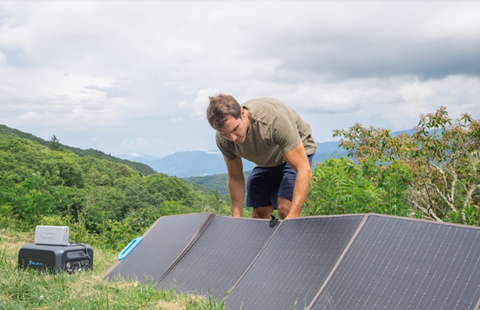
Lors de l'achat de panneaux solaires, il est toujours judicieux de se renseigner sur leur rendement. N'oubliez pas que le rendement des panneaux solaires dépend souvent de la quantité de lumière qu'ils peuvent absorber.
Les panneaux solaires sont plus efficaces lorsque le soleil les frappe directement, et non de biais. Cela correspond généralement à midi chaque jour. De plus, l'efficacité maximale se situe plutôt dans une plage horaire que sur un moment précis de la journée.
Outre leur rendement, il est essentiel de prendre en compte l'intensité lumineuse des panneaux solaires. Plus le ciel est bas, plus la lumière doit traverser un obstacle pour atteindre les panneaux. À l'inverse, lorsque la lumière est au zénith, elle est plus intense.
De plus, le rendement de vos panneaux solaires est influencé par les variations saisonnières. En effet, à certaines saisons, le soleil brille plus longtemps qu'à d'autres.
Par conséquent, le rendement énergétique des panneaux solaires sera plus élevé au printemps et en été. Durant ces mois, le soleil brille plus longtemps, ce qui se traduit par une luminosité accrue que les panneaux solaires peuvent absorber.
Vos panneaux solaires seront moins performants en automne et en hiver. Cependant, ils n'ont pas besoin de lumière directe du soleil pour fonctionner efficacement. Même par temps nuageux, la lumière traverse les nuages et le système solaire fonctionne tout aussi bien.
D'autres fabricants affirment même que leurs panneaux solaires sont plus performants, car la température du panneau influe sur la production d'énergie. De plus, un panneau peu chaud et bien exposé à la lumière offre les meilleurs résultats.
Par temps nuageux, vous bénéficierez de la lumière naturelle et éviterez les désagréments liés à la surchauffe des panneaux.
L'heure de la journée en fonction de la production solaire
Les panneaux solaires peuvent émettre de l'énergie pendant toute la matinée.Cependant, comme mentionné précédemment, la production d'énergie varie selon le mois et l'heure de la journée. D'autres facteurs, tels que le type d'éclairage, les conditions météorologiques (lumière directe ou diffuse), le rendement des cellules solaires et votre situation géographique, influent également sur la production d'énergie et doivent être pris en compte.
Ces facteurs changent, et par conséquent votre production change également.
Le matin, la production est souvent faible en raison de la faible luminosité. Au fil de la journée, avec l'augmentation de l'intensité lumineuse, la production des panneaux solaires s'accroît. C'est généralement entre la fin de la matinée et le début de l'après-midi que la plupart des panneaux solaires produisent le plus d'énergie. La production d'énergie s'annule la nuit.
Comment maximiser votre investissement dans l'énergie solaire ?
Saviez-vous qu'en prenant des décisions judicieuses concernant votre foyer, vous pouvez optimiser votre consommation d'électricité et réaliser des économies ? Voici quelques conseils pour tirer le meilleur parti de votre énergie solaire.
- Optimisez votre énergie diurne
Optimisez votre consommation d'électricité en l'utilisant pendant la journée, car l'énergie solaire provient directement du soleil.
Commencez à utiliser vos appareils les plus énergivores, comme les lave-linge et les lave-vaisselle, pendant la journée. Grâce aux appareils intelligents, il est désormais possible de programmer vos cycles de lavage pour qu'ils démarrent et s'arrêtent automatiquement si vous êtes absent(e) en journée.
Vous pouvez réduire, voire éviter, d'avoir à acheter de l'énergie auprès de votre fournisseur la nuit en optimisant votre production d'électricité solaire tout au long de la journée.
- Évitez les ombres
L'ombrage est un élément essentiel à prévenir lors d'une analyse de site préalable à l'installation. Une fois les panneaux solaires installés, il faut veiller à ce que l'ombrage ne devienne pas trop important, comme la pousse d'arbres imposants, car cela réduirait la production d'énergie du système.
N'oubliez pas qu'il n'est pas forcément nécessaire d'abattre les arbres. Vous pouvez simplement les tailler pour que les panneaux ne soient pas ombragés.
- Partagez votre surplus d'énergie renouvelable et soyez rémunéré.
Les centrales électriques virtuelles permettent aux ménages de partager leur surplus d'énergie renouvelable stocké dans leur batterie solaire.
Lorsqu'un groupe de ménages possède des batteries solaires, ils peuvent se connecter à un fournisseur de centrales virtuelles grâce à une technologie intelligente afin de produire un réseau d'énergie propre.
L'énergie excédentaire produite par les batteries solaires peut être injectée dans le réseau VPP lors des pics de consommation électrique, et les économies réalisées profitent ainsi aux participants. Posséder de l'énergie propre, c'est comme la louer quand on n'en a pas forcément besoin.
Résultat ? Les ménages admissibles bénéficieront de factures d’énergie réduites, d’une plus grande autonomie énergétique et de paiements pour le partage de l’énergie stockée. Les avantages varieront également selon les différentes sources de programmes d’énergie virtuelle ; les propriétaires pourront donc comparer les programmes afin de trouver celui qui leur convient le mieux.
- Investissez dans une batterie solaire et stockez l'énergie solaire excédentaire.
Les batteries solaires fonctionnent en stockant l'énergie produite par vos panneaux solaires pour une utilisation ultérieure. Cela signifie qu'elles conservent l'énergie excédentaire chez vous au lieu de la renvoyer sur le réseau.
Si les panneaux solaires produisent plus d'électricité que nécessaire, l'énergie excédentaire servira à recharger la batterie. Vous pourrez ensuite puiser dans cette énergie stockée lorsque les panneaux solaires ne produisent pas d'électricité, notamment pour alimenter vos appareils électroménagers et produire de l'électricité la nuit.
- Tenez compte de vos projets futurs lors du choix d'un système
Vous envisagez d'avoir des enfants ? De rénover votre maison ? D'acheter un véhicule électrique ? Vous constaterez les avantages de l'énergie solaire dès l'installation du système, mais un système solaire est un investissement pour l'avenir.
Par conséquent, choisir le système idéal pour votre foyer est un élément essentiel à prendre en compte dans vos projets futurs.
Votre fournisseur d'énergie solaire peut vous aider à déterminer le système idéal pour votre maison, aujourd'hui et pour l'avenir. Il peut également vous proposer une solution personnalisée, en vous conseillant notamment sur le nombre de panneaux nécessaires et leur emplacement optimal sur le toit.
- Prenez soin de votre système solaire
Il est conseillé de faire examiner votre installation solaire par un professionnel au moins tous les deux ans, même si elle fonctionne correctement. Vous pouvez contacter votre installateur d'origine ou faire appel à un expert pour ce service.
Vérifiez votre facture d'énergie et votre onduleur pour déterminer la quantité d'énergie produite et comparez-la aux prévisions du système et aux conditions météorologiques.
Foire aux questions
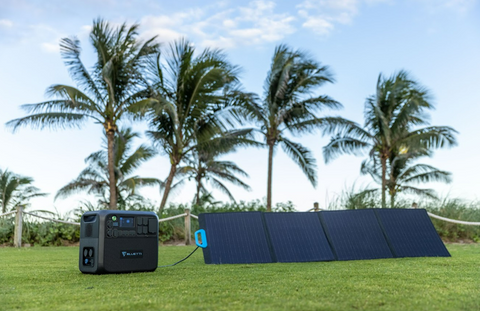
Q : Les panneaux solaires fonctionnent-ils par temps nuageux ?
Les panneaux solaires peuvent capter de l'énergie même par temps nuageux, mais en moindre quantité que par temps ensoleillé. De plus, la quantité d'énergie qu'ils captent dépend de la régularité et de l'épaisseur de la couverture nuageuse.
En théorie, les panneaux solaires fonctionnent bien dans les régions où les températures sont modérées. Leur production d'énergie diminue lorsque les températures dépassent 25 °C (77 °F). De plus, les panneaux peuvent devenir extrêmement chauds, ce qui réduit leur rendement. Quelques jours nuageux n'affectent pas la production d'énergie.
Les jours nuageux et pluvieux peuvent aussi être bénéfiques à vos panneaux solaires. En effet, les panneaux photovoltaïques peuvent exploiter la lumière solaire indirecte et celle réfléchie par les nuages. Avec le temps, le pollen et la poussière se déposent sur les panneaux solaires, et les jours de pluie, l'eau lessive ces impuretés, permettant ainsi à vos panneaux de fonctionner de manière optimale.
Q : Les panneaux solaires fonctionnent-ils à l'ombre ?
Les panneaux solaires peuvent fonctionner à l'ombre, mais leur rendement est alors réduit. Les professionnels les installent dans un endroit bénéficiant d'un ensoleillement maximal tout au long de la journée. Or, la plupart des habitations ne disposent pas d'emplacements aussi ensoleillés.
Les panneaux solaires peuvent fonctionner même en faible luminosité, mais pour un rendement optimal, il est indispensable de les installer dans un endroit bénéficiant d'un ensoleillement maximal. L'ombre, sous toutes ses formes, aura un impact plus important sur leur production.
La cause la plus fréquente d'ombrage sur les panneaux solaires est la présence de nuages. Les professionnels ne peuvent rien faire pour empêcher l'installation de panneaux solaires dans des zones nuageuses, mais ils peuvent adapter leur emplacement en conséquence.
Une autre raison fréquente pour laquelle les panneaux solaires sont ombragés est la présence d'arbres. Les zones résidentielles sont arborées, et les spécialistes ne peuvent pas les empêcher de pousser dans d'autres communes lors de l'installation de panneaux solaires.
Q : Les panneaux solaires fonctionnent-ils sans lumière directe du soleil ?
Les panneaux solaires fonctionnent de manière optimale par temps clair, lorsque le soleil brille et que les panneaux sont propres. Cependant, ils n'ont pas besoin de lumière directe du soleil ; ils ont besoin de lumière. Les panneaux solaires captent de l'énergie même par temps nuageux.
De plus, la lumière solaire indirecte produit de l'énergie, mais pas autant que la lumière solaire directe.
De nombreux panneaux solaires sont noirs afin de pouvoir absorber davantage de lumière, même par temps nuageux. Lorsque la lumière du jour frappe les semi-conducteurs en silicium, des réactions chimiques produisent un courant électrique.Le panneau transforme les photons en électrons, puis les transmet à un onduleur afin que votre maison puisse utiliser l'énergie du courant alternatif.
Leur fonctionnement à pleine puissance est réduit si les panneaux solaires sont couverts. Même si une partie des panneaux est ombragée, le reste du panneau continuera de capter la lumière. La production d'électricité diminue alors.
C'est pourquoi les panneaux solaires ont besoin de la lumière directe du soleil pour fonctionner à plein rendement. Ils peuvent ainsi capter un maximum d'énergie et la stocker pour les jours où le ciel est couvert. Souvent, par temps nuageux et avec un ensoleillement indirect, les panneaux solaires fonctionnent à environ 60 % de leur capacité maximale.
Réflexions finales
Pour revenir à la question initiale : les panneaux solaires fonctionnent-ils la nuit ? Non, mais le fait qu’ils ne produisent pas d’électricité la nuit ne les rend pas moins précieux. Grâce au stockage d’énergie solaire par batterie, comme celui proposé par Bluetti, l’énergie solaire excédentaire produite pendant la journée peut être stockée efficacement et en toute sécurité la nuit pour une utilisation ultérieure. Nous vous invitons à découvrir nos panneaux solaires et nos systèmes de batteries de secours. Pour toute question, n’hésitez pas à contacter notre service client.
Chez Bluetti, trouvez tout ce qu'il vous faut pour vos besoins en énergie solaire !






